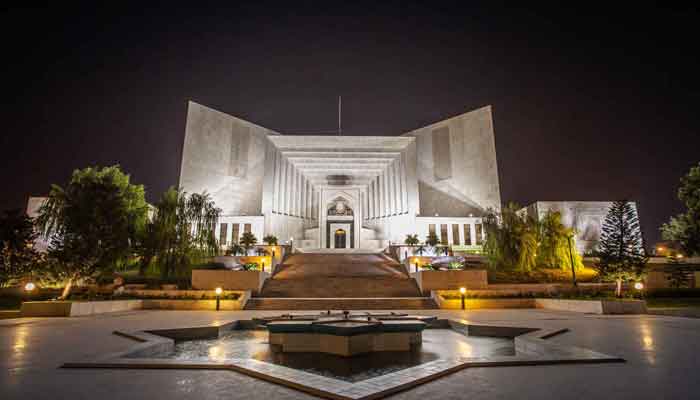Interim or interlocutory orders: Does Supreme Court even interfere?
The Supreme Court does not interfere in interim/interlocutory orders passed by the high courts
February 22, 2023

It goes without saying that the courts are sanctuaries of justice, and in the exercise of authority to do ex debito justitiae, that is to say, remedy a wrong and to suppress a mischief to which a litigant is entitled. While writing this article, I shall shed some light on when do or when should or when has the Supreme Court interfered in interim/interlocutory orders passed by the high courts. Furthermore, I shall also be shedding some light as to whether the Supreme Court even have the jurisdiction to interfere or to intervene in interim/interlocutory orders.
Distinction between interim and final order
Before proceeding further, it would be expedient to first refer to the distinction between an interim and a final order. An interim order refers to an order which does not completely decide/dispose of the case in its entirety. Whereas, a final order is one which decides/disposes of the case in its entirety. It may also be pertinent to mention here that at the time when a list is finally decided any interim/interlocutory orders already passed automatically merge into the final orders.
Necessary conditions for the grant of interim/interlocutory order in terms of Order XXXIX Rule 1 and 2 of Civil Procedure Code 1908
In order to grant an interim/interlocutory order under the provisions of Order XXXIX Rule 1 and 2 of the Civil Procedure Code 1908, three fundamental/essential conditions need to be met. (i) There must be a prima facie case; (ii) the balance of convenience must lie in favour of the Plaintiff; (iii) in case the interim relief is not granted the Plaintiff shall suffer irreparable loss. It may also be pertinent to mention here that in order to grant an interim/interlocutory order all three conditions must be satisfied failing which no interim relief could be granted.
When does Supreme Court interfere in interim/interlocutory orders?
As already stated above, generally, the Supreme Court does not interfere in interim/interlocutory orders passed by the high courts. However, where the interim/interlocutory orders are (i) perverse; (ii) capricious; (iii) arbitrary; (iv) lead to grave miscarriages of justice the same can well be and have been interfered with by the Supreme Court in the exercise of its Appellate Jurisdiction under Article 185 (3) of the Constitution of the Islamic Republic of Pakistan 1973.
Some past practices of apex court relating to successful interference with interim/interlocutory orders
In the landmark case of Yousaf Ali Versus Muhammad Aslam Zia; Muhammad Aslam Zia Versus Yousaf Ali reported as PLD 1958 SC 104 a larger bench of the apex court laid down the principles for interference in interim orders by the Supreme Court while exercising it's Appellate Jurisdiction under Article 185 (3) of the Constitution of the Islamic Republic of Pakistan 1973. The process of interference with interim orders continued before the Supreme Court in numerous pronouncements.
Some past practices of apex court relating to refusal to interfere with interim/interlocutory orders
It may be pertinent to mention here that the jurisdiction of the apex court under Article 185 (3) of the Islamic Republic of Pakistan 1973 to interfere with interim/interlocutory orders is not absolute. There have been instances in the past where the apex court has even refused to interfere/intervene in interim/interlocutory orders passed by the high courts.
And confusion still persists pertaining to interference with interim/interlocutory orders by apex court
As stated above, the jurisdiction of the apex court to interfere with interim/interlocutory orders while exercising its Appellate Jurisdiction under Article 185 (3) of the Islamic Republic of Pakistan 1973 is not absolute. Just recently a learned two-member bench of the apex court in its recent pronouncement was pleased to hold that ordinarily the Supreme Court does not interfere in interim orders passed by the high courts and was pleased to dismiss the Civil Petition for Leave to Appeal and refused to grant leave. Whereas; through another order pertaining to the same subject matter and that two by the same numerical strength of judges i.e. also a two-member bench judgement the apex court was pleased to dispose of the Civil Petition for Leave to Appeal and interfere against an interim order passed by the high court.
Two conflicting opinions violative of rule laid down in Adreshir Cowasjee versus Karachi Building Control Authority reported as 1999 SCMR 2883?
Just recently, a two-member bench of the apex court while interfering in an interim/interlocutory order passed by the Lahore High Court (LHC) had disposed of a Civil Petition for Leave to Appeal by taking a different view to the one taken by the same numerical strength of judges of the apex court a few days back. This by itself goes against the well-settled principle of law expounded by the apex court in its celebrated judgment of a larger bench in which a larger bench of the apex court was pleased to hold that “an earlier view taken by the apex court of a bench of equal numerical strength is binding on another bench of the apex court of an equal numerical strength”.
I would now conclude by saying that interference with interim/interlocutory orders by the apex court still requires clarity as a lot of confusion in this regard still persists. A clear and authoritative pronouncement in this regard is still awaited as to which view needs to be followed.
The writer is a lawyer based in Lahore.
Disclaimer: The viewpoints expressed in this piece are the writer's own and don't necessarily reflect Geo.tv's editorial policy.











